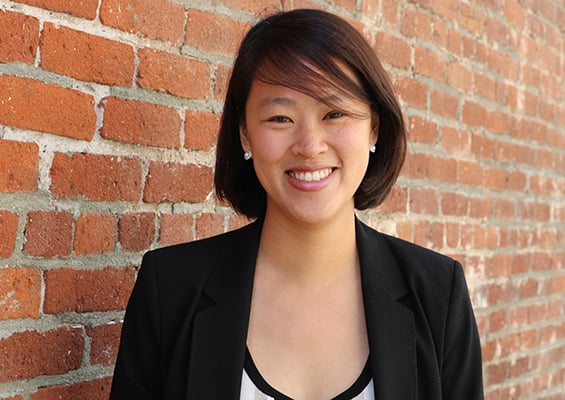Many people think of an MBA simply as another qualification—a piece of paper to frame and hang on your office wall. While a degree from a quality MBA program has inherent value in and of itself—it’s often seen as a necessary credential to be taken seriously in the business world, and the starting salaries of recent MBA grads are generally higher than for those without one—I would argue that the process of earning an MBA is where the true value of the degree lies.
Three ways an MBA offers value to aspiring women leaders
-
Builds the ability to execute quantitatively and to speak the language of business
-
Delivers a high-caliber network for future career opportunities, insights, and hires
-
Confers confidence in your value, so you can ask for what you need and want
Moving into higher-level positions with greater authority in organizations requires a working knowledge of the hard skills and language of business, and, generally, the higher you rise, the more you are expected to execute on the quantitative side of the equation. When you participate in a well-rounded MBA degree program, you’ll be immersed in the hard and the soft skills.
Says Jamie Breen, Assistant Dean, Berkeley MBA Programs for Working Professionals (including the Evening & Weekend MBA and the MBA for Executives Programs), “An MBA gives you a point of view across all the different functional areas of an organization—finance, marketing, and so forth—whether it’s for profit, nonprofit, or government. An MBA also gives you insight into different kinds of decision-making models and how you can use those levers in different situations. But I’ve seen hundreds of students go through our programs, and I think one of the most valuable things we do is teach them how to hold their own in just about any business conversation; that’s of tremendous value to both women and men.”
Emilie Arel, MBA 12, a Berkeley Haas alumna and president and CCO of Casper, recalls the exact moment she realized she needed to up her game and get her MBA. “I remember sitting in a meeting and someone was talking about P/E ratios,” says Emilie. “I thought to myself, ‘I don’t really understand what they are saying—I think I need to get my MBA.’” Before her current role at Casper, she served as CEO of Fullbeauty Brands, CEO of Amazon’s Quidsi subsidiary, and vice president and general manager at Gap.
Earning an MBA gave me the confidence to sit at the table."
MBA programs bring together people from all sorts of backgrounds and life experiences; some are three years out from their bachelor’s programs while others may be executives with years of business experience under their belts returning to gain new skills and knowledge and to make a career pivot. MBA programs often have significant international populations as well, and meeting and working closely with a broad base of people creates tremendously powerful networking opportunities that can be carried throughout your career. This network can be a rich future source of job opportunities, business partnerships and collaborations, or even just a sounding board for ideas and initiatives.
Knowing your value
Going through the process of earning your MBA can provide you with one more very important thing toward closing the gender gap at work: the confidence you need to excel, to know your value, to ask for what you want, and to rise up to your company’s top-leadership ranks. “Learning the vocabulary of business and networking with others were both important, but above that earning an MBA gave me the confidence to sit at the table with everyone else because I’ve learned the things I need to run a business,” says Emilie. As you work through an MBA program, you can hold your own in just about any business conversation. Should we do an acquisition? Should we roll out a new product? Should we reorganize? Should we introduce new technology platforms to support our business? Not only will you have more knowledge and more confidence to make decisions, no one can BS you—you can hold your own in any business discussion.
Regardless of their reasons for choosing to enter an MBA program, women will find that the benefits are many and that they last a lifetime.










